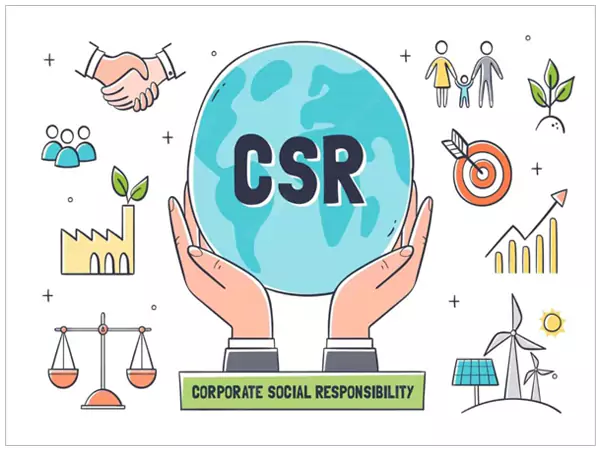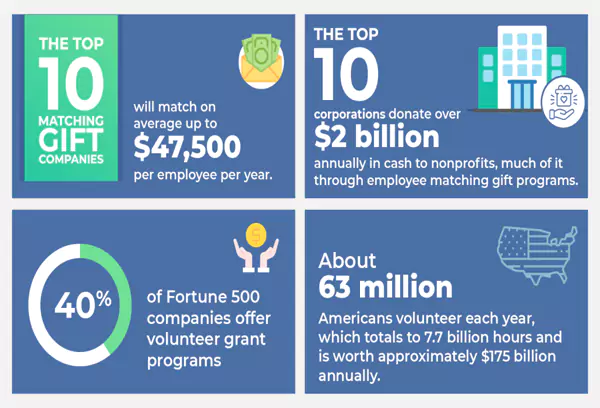
We live in a world where caring about the environment and the people around us is a necessary part of everyday life.
And while regular people don’t have the resources to change the world, companies, and businesses can lead the change and promote positive changes.
We need a well-crafted corporate social responsibility strategy for a company to even get an improvement in reputation, let alone get better connected with society.
This article will explore the concept of social responsibility, examples of social responsibility strategies, why it’s necessary for a modern business, what benefits it brings, and what potential pitfalls social responsibility can face if done incorrectly.
Simply speaking, a business can call itself socially responsible when it cares about more than just generating massive profits.
DID YOU KNOW?
More than 76% of companies report on CSR as a way to reduce brand reputation risk.
Being socially responsible means that a company cares for its employees and is willing to spend some of its hard-earned money back in the community.
Some examples of socially responsible businesses include:
Consumers worldwide are more and more looking to buy goods and services from socially responsible companies, and thinking about their values and good deeds before sending money their way.
In fact, according to Harvard’s Business School, 77% of Americans are inclined to buy from companies committed to making the world a better place. Moreover, around 25% of Americans maintain a “zero tolerance” policy toward companies that engage in questionable ethical practices.
You know, corporate social responsibility can also help businesses boost their brand image and customer loyalty, create a positive business reputation, increase employee morale, bring in more investments from environmentally savvy investors, and help the world on a larger scale than individuals could.
Let’s look at a few ways your company can become more socially responsible.
Encouraging a healthy, safe, and inclusive workplace is one of the core parts of being socially responsible, as it demonstrates that business owners and investors care for their employees, treating them like important parts of the business’s chain, not just a pair of hands.
This can look like offering training on inclusivity, having a thriving team of human resource experts, providing your employees with healthy lunch options, giving them access to a free gym, or offering health benefits, such as a robust health insurance package.
This is one of the most straightforward strategies for becoming a socially responsible company.
No matter how you choose to do it (implementing a recycling program, planting trees, supporting environmental projects, etc.), if the company has the resources, you should be helping the environment.
You could also encourage the employees to participate.
If they don’t want to spend any money, why don’t you place your good initiative on CareBuzz?
It’s a donation platform where you don’t have to spend any money.
Your employees would download the app and share their unused internet connection.
CareBuzz turns this bandwidth into money and donates it to the initiative of your employee’s choice.
It’s that simple—you can do something good without spending money!
Similarly to the first strategy, engaging in ethical labor practices means treating your employees well. Your workers should be able to earn fair wages and work reasonable hours in sanitary and safe conditions.
Most people have heard horror stories of unsafe warehouses in Asian countries, where people work in dangerous conditions, earning pennies for hours of work.
And you probably know someone who has experienced blatant discrimination at work, or they know someone who has.
In this case, ethics also involves ethically sourcing your materials and avoiding forced labor, child labor, and discriminatory practices at all costs.
Setting up the core values and rules on employee conduct on issues such as ethics, environment, diversity, employee respect, and customer service are fundamental parts of a modern and socially responsible business.
More and more companies are now transparent about their environmental and social projects, letting the public know how they’re spending their money and resources towards making the world a better place.
Some Common Facts About CSR

Although socially responsible businesses have become the standard in recent years, some people have quite a lot of criticisms towards these businesses. Some of the main criticisms include:
This is when a company claims to be socially responsible or environmentally friendly but never truly implements substantial changes.
The critics argue that some businesses use this label as a marketing ploy to attract environmentally conscious consumers and their money without making meaningful efforts to minimize their environmental impact or improve their social practices.
They contend that these companies are prioritizing their financial interests over social and environmental responsibilities when facing difficult decisions, possibly undermining the very principles they claim to uphold.
Selective activism can be seen as opportunistic because companies may choose to support causes that align with their brand image or consumer demographics instead of addressing the most urgent global challenges.
They contend that without robust reporting and accountability measures, it becomes almost impossible for consumers and stakeholders to evaluate the genuine effect and sincerity of these businesses.
This co-optation can divert attention and resources away from more radical and transformative solutions, potentially hindering progress on vital issues.
Besides, it’s important to remember that these criticisms do not destroy the positive contributions that socially responsible businesses can make to our society and the environment.
Instead, these concerns highlight the need for greater evaluation, accountability, and honest commitment to these principles to ensure businesses genuinely live up to their social responsibility claims.

All in all, embracing social responsibility isn’t just a morale boost
It is a strategic move that can lead to long-term business success.
You can foster stronger relationships with customers, employees, and communities by aligning your company’s goals with the greater good.
